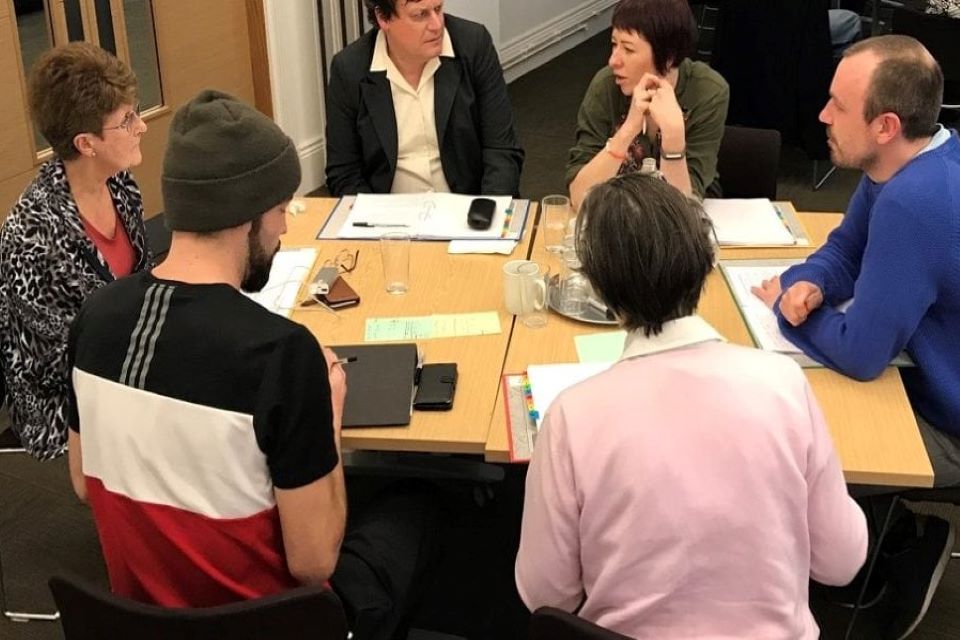Our new dialogue with the public about data for public benefit
We have launched a project to explore how people weigh up the benefits and disadvantages of health and social care data sharing for research.

This project is co-funded by the National Data Guardian for Health and Care, Understanding Patient Data and the Sciencewise programme. The dialogue process is being designed and managed by Hopkins Van Mil, following a mini competition run by Sciencewise.
The planning for this project started long before the outbreak of the Coronavirus Covid-19 pandemic, so it’s not a reaction to it. However, we are already thinking about how the knowledge and attitudes of our public participants may have been affected. We will work with our partners to consider this carefully in the design of the dialogue to acknowledge this and to ensure that resultant guidance remains relevant to a wide range of data sharing scenarios.
What sort of data uses we’ll be exploring
Whenever we go to a doctor or a hospital, if we receive support from social services in our own home or live in a care home, the people looking after us record information about us in our records. The main reason for this information being recorded is to make sure we get good individual treatment.
As a result, the NHS and social care services hold a lot of information about individuals and this can also be used for other things. When data from many people is linked up and pooled, it can be used by researchers and scientists to identify patterns and develop new ways to predict, diagnose or treat illness.
NHS and social care organisations do not always have the expertise needed to do this work on their own and so they sometimes work in collaboration with researchers, scientists and inventors in universities or private companies. New medicines and technologies can then be developed to treat patients. This dialogue will explore public attitudes towards the sharing of health and social care data for data-driven research and innovation in England.
Why a dialogue now?
There is significant government activity and investment to advance the life sciences sector by providing improved access to health and care data to encourage data-driven research and innovation.
Organisations which hold health and care data already assess public benefit or interest when deciding whether to allow it to be used to develop new medicines and technologies. But as demand for access to this data grows, more detailed guidance on how to make such judgements will help to ensure that decision making is consistent, and that the public can be confident that their data is being used in the public interest.
What we will look at and what difference this will make
In relation to the uses of such data for purposes beyond individuals’ own care, such as research and innovation, we know that the extent to which such purposes benefit the public is the critical crucial condition for their acceptance of its use.
We know that concerns can be raised when organisations with commercial interests are involved in using data generated by our use of publicly-funded NHS and social care services. We’ve seen this many times in our engagement to date; previous pieces of research; and in media, social media and public discussions.
This dialogue will improve our understanding of how the public assesses and weighs the public benefits and disbenefits of proposed data uses in a range of scenarios. We will ask our public participants which benefits count as ‘good enough’ to make the use of data acceptable in their view.
We are keen to ensure that we explore the use of social care data as well as health data. And to look at some more complex questions: what about when a use of data might benefit some groups of people, but not others? what if it’s quite uncertain what the results of a piece of research might be? what if it won’t benefit the people whose data was used or their families, but instead people who are quite distant, perhaps in another country, or many years hence? How do these factors affect people’s attitudes towards whether there is enough public benefit to merit data being used?
The National Data Guardian intends to develop guidance or advice that would help organisations to carry out public benefit assessments with greater consistency across the health and social care sector. This will help a range of bodies and data controllers to make decisions about whether data should be used for purposes beyond individual care. Working with Understanding Patient Data and the members of the public that we will be involving in our dialogues, we aim to ensure that what we develop is in line with the public’s values.
How will the dialogue be structured?
Public dialogue workshops will take place in autumn 2020 at four locations around the UK: Reading, Stockport, Great Yarmouth and Plymouth. A report will be published in spring 2021 summarising the findings of the initial workshops. This will be used by the National Data Guardian and Understanding Patient Data to develop public benefit guidance and a further dialogue workshop will be held that spring with a number of the original workshop attendees to test whether this meets their expectations.
An Oversight Group is being formed to bring independent oversight to the process and development of materials. The Group includes stakeholders with a range of different perspectives on the topic, including patients. We are also currently holding a process to appoint an independent project evaluator.
We’re excited to be launching this project and will let you know more as it progresses.